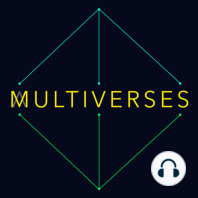75 min listen
29 | What are words good for? — Nikhil Krishnan on Ordinary Language Philosophy
FromMULTIVERSES
ratings:
Length:
97 minutes
Released:
Apr 12, 2024
Format:
Podcast episode
Description
Words. (Huh? Yeah!) What are they good for? Absolutely everything.At least this was the view of some philosophers early in the 20th century, that the world was bounded by language. ("The limits of my language mean the limits of my world" to use Wittgenstein's formulation over the Edwin Starr adaptation)My guest this week is Nikhil Krishnan a philosopher at University of Cambridge and frequent contributor to the The New Yorker His book A Terribly Serious Adventure, traces the path of Ordinary Language Philosophy through the 20th century.We discuss the logical positivists (the word/world limiters) and their high optimism that the intractable problems of philosophy could be dissolved by analysis. Their contention that the great questions of metaphysics were nonsense since they had no empirical or logical content.That program failed, but its spirit of using data and aiming for progress lived on in the ordinary language philosophers who put practices with words under the microscope. Hoping to find in this data clues to the nuances of the world.This enterprise left us with beautiful examples of the subtleties of language. But more importantly, it is a practice that continues today, of paying close attention to our everyday behaviors and holding our grand systems of philosophy accountable to these.Listen to discover things you know, but didn't know you knew — like the difference between doing something by accident vs by mistake.Do check out Nikhil's own podcast, Minor Books, on iTunes or Acast (00:00) Intro(02:49) Start of conversation: Philosophical background and history(04:47) The Evolution of Philosophy: From Ancient Texts to Modern Debates(16:46) The Impact of Logical Positivism and the Quest for Scientific Philosophy(38:35) J.L. Austin's Revolutionary Approach to Philosophy and Language(48:43) The Power of Everyday Language vs the Abstractions of Philosophy(49:11) Why is ordinary language so effective — Language Evolution?(52:30) Philosophical Perspectives on Language's Utility(53:28) The Intricacies of Language and Perception(54:48) Scientific and Philosophical Language: A Comparative Analysis(57:14) Legal Language and Its Precision(01:07:33) LLMS: The Future of Language in Technology and AI(01:10:33) Intentionality and the Philosophy of Actions(01:18:27) Bridging Analytic and Continental Philosophy(01:33:46) Final Thoughts on Philosophy and Its Practice)
Released:
Apr 12, 2024
Format:
Podcast episode
Titles in the series (29)
3| Julian Barbour — Relational Space and Time by MULTIVERSES
